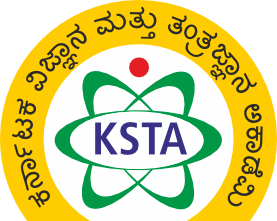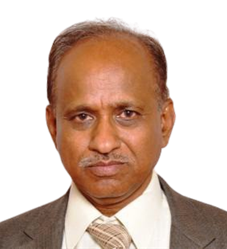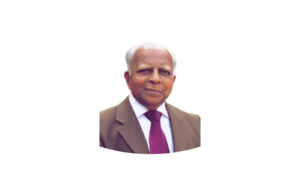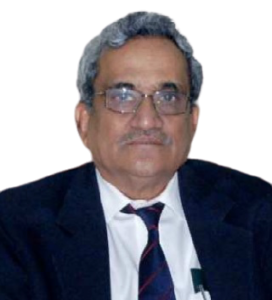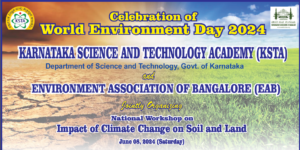Post Covid Education, Research in Animal Sciences and Healthcare – Prof. Katre Shakuntala
7 min readA: Education Sector
Since the lockdown situation happened without much notice, an expected sudden shift in academic delivery from F2F to ‘Online’ has been quite unsatisfactory for several reasons:
- In the Indian education ecosystem in general, at all levels of educational delivery, F2F has traditionally been the predominant practice, and largely, all our teachers are comfortable only with such practices. However, of late, due to a global shift in emphasis to adopt computer-aided educational technologies, and due to the high-cost of adopting such technologies, the practice has taken off more noticeably and in quick time, in private institutions rather than in public institutions. This is true also because many companies have sprung up to reach out such technology-aided and content-based e-solutions to institutions but at a high cost affordable only by affordable private institutions. Even amongst private and unaided institutions, those who are fee-dependent for their revenue, have not had the luxury of adopting these e-solutions, and such institutions are no better than public institution.
- However, the efforts of the Government in reaching out training to teachers of Government-aided institutions (especially schools), under the TALP (Technology-aided learning programme) and the efforts of the Chalkere unit of IISc., in providing domain- based and technology-aided training (both in theory and practicals), have provided adequate support for teachers in schools, pre-university colleges. This has had a spiralling effect, and many of our teachers have not only implemented the TALP in reality, after going back to their institutions after training, but have also uploaded a number of YouTube videos of their lectures for the benefit of the learners. Many of these You tube videos are very popular and have earned government school/college teachers coveted state and national awards for their efforts. Aside of this, there are also several educational material available through Byjus / Khan Academy/Tata Stride and such others, which are being accessed both by our teachers and students based on their interest and guidance to access the appropriate search engines. This practice has been there for a couple of decades before now and has no relation with the lockdown during COVID. It is true that such efforts were undertaken by only those teachers who were motivated to bring about such transformations and was not practiced by all teachers.
- The situation of Lockdown during COVID brought about a sudden need for all teachers at all levels of education to resort to technology-aided teaching-learning practices, for which neither the entire teaching community nor the educational institutions were ready, for many lacked the training/expertise as also the necessary ICT infrastructure availability and proper administrative/technical support. So, essentially what was resorted to and insisted by managements was not the planned ‘Online’ TL practices but a weak “Emergency Remote Teaching-Learning” (ERTL) that was resorted to. Proper Online learning calls for a lot of preparation, well-thought over content preparation, planned time-schedules and continuous availability of network connectivity and other accessories of distance learning programmes. World over, today, it is advocated that instead of a full online learning. a blended learning/hybrid learning programme is more effective, which also requires a lot of planning and involvement of both the management and the teachers. Therefore, with the experience of what happened due to sudden lockdown, it is now necessary for managements, teachers and the authorities to reach out appropriate training as also erect appropriate infrastructure to shift at least partially to planned ‘online education’ in the institutions. May be TALP and similar training modules must be made mandatory to all teachers (Government, aided and unaided private institutions alike), to enhance their Teaching practices and add value not only to their profiles but also add competitive value for their learners.
A more important situation which requires a lot of planning and implementation is the reopening of the educational institutions post lifting of the lockdown. Here, it is necessary to understand that a ‘one-size fit for all’ strategy will not be successful. Each level of education starting from Early Childhood Education, through pre-nursery-nursery-primary-secondary-tertiary – each has its own specific contexts, needs and parental-anxieties. So, it is necessary to thoroughly examine each situation, and workout strategies that would yield the best results. For this, the teachers in charge, the Head of the Institute, and the managements must come out with institution-specific and education-level-specific strategies of institutional sanitization, social distancing during learner contact as well as stay in the institution, sharing of learning materials and staff allocation. Since the infrastructure availability and faculty availability are highly diverse, each institution must draft a plan in accordance with the general guidance given by the authorities and implement the plan/strategies to ensure optimal learning environment with maximum safety to learners as well as all other components of the institution. Every institution must be sensitive to the situation and open for probity at all times. There must be an institution-specific Risk management team made responsible for the planning process and implementation of the strategies, and regular reports must be submitted to the authorities, for information and intervention if necessary.
A drop in admissions due to fear in the minds of the parents and/or a necessary situation due to infrastructure constraints to keep up to the mandatory social distancing norms, should be forecast and appropriate strategies worked out by each institution, to lower the burden of revenue loss.
KSTA must be given the responsibility of developing multimedia material in bilingual media (at least at school level), in science and technology subjects. Such material should not be just syllabus-based but beyond the syllabus too, so that learners are motivated to pursue science, technology and skill development further education of their choice. While doing so KSTA must involve renowned teacher-scholars at each level of education to develop the media material, as also have external experts drawn from higher levels of education, to scrutinize and approve the contents thus developed. This would ensure availability of quality learning resources at all levels of education.
Due to shift in emphasis on Technology-aided learning, it is quite likely that many institutions at all levels of education may be rendered disruptive. Therefore, both the authorities and the management must come out with feasible plans to avoid such a situation through appropriate strategies/model.
In any situation post-lockdown, teachers, managements and authorities must pay particular attention to access, equity and inclusiveness – which calls for a parallel shift in emphasis on personalized learning, competency-based and out-come based learning. Especially at lower levels of education, teachers must also be trained to adopt the theory of multiple intelligence, especially in reaching out to students with learning disabilities as also to PWDs. Lockdown and post-lockdown period will be a testing time especially for the teachers to reach out to the students with learning disabilities and the differently-abled students. Gender-based Inclusiveness is a sensitive yet important issue that needs to be borne in mind.
B: Research in Animal Sciences
- Funding agencies must be forthcoming to fund relevant basic research in animal sciences (Microbiology, epidemiology, virology, Cell Biology, genetics and such others).
- Meaningful research collaborations between renowned researchers working on basic science projects and those working in applied research organizations/industries must be encouraged through wide publicity and facilitating ease of collaboration and recognition.
- The modelling undertaken by the IISc and JNCRC group of scientists must be widely publicized, for the benefit of people at large and interested people in particular.
C: Healthcare
- Many renowned experts in healthcare have enlightened us with dos and don’ts, need for healthcare institutional preparedness for COVID and POST-LOCKDOWN situations, which has added a lot of value to the strategies expected.
- A lot of statistical information has also educated us on forecasting the spread of the pandemic in the coming days and what needs to be done by individuals and the authorities.
- One aspect that was not addressed was the psychology of people in different situations. Especially related to the teens, it is known that India has one of the highest teen suicide rates. In schools and colleges, recent trends are that students bond with strong friendships and even relationships (though precocious). COVID norms of social distancing, lockdown and fear of COVID infection would have a lot of psychological affects and therefore, it is necessary for all institutions to cater to the psychological counselling needs of all students in general and specific identified serious cases to avoid unfortunate happenings.
- Parents too need counselling and while the institutions cannot arrange for this, there must be regular PTAs through VCs, to have a good rapport and get useful feedbacks.
- In general, the public is bombarded with a lot of statistical data on COVID related infections, rise in death rates and so on, which is also affecting the psychology of parents of children below the age of ten, children of that age and adults beyond the age of 60-65. Some statistical information/publicity on the low number of cases/fatalities in these age groups, and fatalities largely/only due to co-morbidities, would be of great help to boost the psychology of people in this senior-age group.
- Some more information on individual immunity would be beneficial to readers.
- * Yet another aspect of deep thinking (at my level) is the generally-casual attitude of people who either do not know the seriousness or want to defy norms due to their own attitudes or a weakness of the humans to lie in situations for their own personal gains- all of these are causes for unexplainable spikes in the spread of the pandemic. How do we anticipate and/or handle these situations?
- One of the uncertainties is the duration of the COVID situation. People must be made aware that like any other viral epidemic of yester years, one needs to learn to live with COVID-19, with necessary life-style changes. This must be publicized widely to remove the fear psychosis amongst the people and let them act in the situation with responsibility and not with fear. This itself will have an immune-boosting effect.
- I personally believe that the authorities must arrange to have designated psychological counselling centres where people in need must be able to seek help online and if need be having follow up facilities.
– Prof. Katre Shakuntala
Former Dean (Science) & Head, Dept. of Zoology,
Bangalore University/ Special Invitee (GB & EC), KSTA
skatre1946@gmail.com
